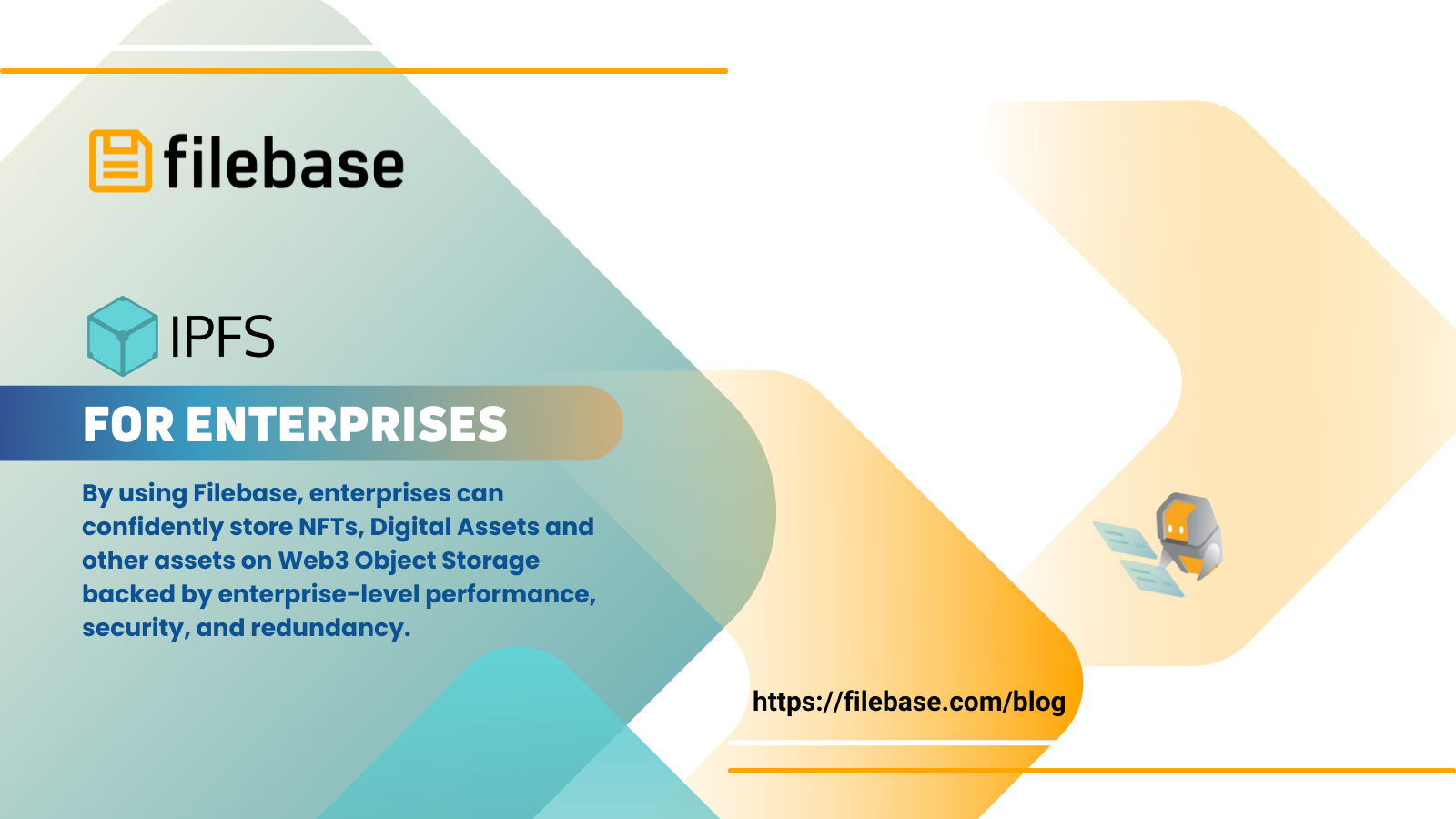IPFS For Enterprises

Recently, a number of well-known enterprises have begun to take the plunge into Web3. They’ve begun to explore different Web3-based workflows such as selling NFTs that provide exclusive platform access and features, or exclusive merchandise that NFT holders can claim. Other workflows have been purely digital, like gating content with NFTs, or requiring a user’s crypto wallet to be part of an allowlist in order to make a purchase.
When enterprises begin to dive into the Web3 space, they need to be sure that the technologies they’re implementing and utilizing on the backend are upholding the best practices and adhering to cybersecurity best practices.
As more enterprises begin their migration into the Web3 space, what are the essential components for Web3 technology stacks that provide secure, redundant, and reliable workflows for enterprise-level infrastructures?
Storing Enterprise NFTs
There’s no doubt that NFTs have created a considerable market for businesses to monetize a variety of collectibles, provide exclusive access to different platform features or provide a new way of verifying the ownership of physical items. Companies like Warner Brothers, Nike, Gucci, and Nickelodeon are just a few that have begun offering collectible NFTs that provide holders with additional perks offered by the brand.
Right now, the primary use of NFTs has been JPEG image collections which feature unique pieces of digital art. While this is the most popular use case currently, NFTs can be created using any sort of asset, like pieces of music or audio, video files, or even written documents.
NFTs can be used for a variety of different purposes, such as:
- Virtual in-game items that are used in the metaverse.
- Exclusive videos, movies, and podcasts.
- Property or medical record documents that are verifiable and immutable on the blockchain.
- Certificates of authenticity and ownership for physical collectibles like clothing, jewelry, or event access passes.
- Digital records of career certificates, degrees, or licenses.
Filebase: Enterprise IPFS-as-a-Service
Interplanetary File System is a decentralized peer-to-peer protocol that provides a distributed file storage solution commonly used for storing assets related to NFTs in the Web3 ecosystem. All assets that are stored on IPFS are publicly accessible through the unique content identifier that is generated based on the file’s cryptographic hash. These content identifiers provide a level of immutable verification since any change in the file will result in a different content identifier value.

For these reasons, IPFS has become a popular choice for storing NFT assets. By default, files that are stored on IPFS are only stored temporarily. In order for assets to be stored long-term, they must be ‘pinned’ to an IPFS node.
Filebase is a geo-redundant IPFS pinning service and decentralized storage provider. When a file is uploaded to an IPFS bucket on Filebase, it is automatically pinned to the IPFS network with 3 duplicate copies, each of which is stored on an IPFS node located across 3 unique, geographic regions.
Since data is pinned with 3 copies stored amongst locations located in the United States, London, and Frankfurt, enterprises benefit from 3x redundant, persistent copies of each file pinned to the IPFS network, making data resilient to outages and disasters. Since there are multiple copies located across the world, data is also highly performant and accessible.
Filebase publishes all IPFS CIDs to the network's Distributed Hash Table (DHT). This means that data retrieval times are highly performant, regardless if you are using a Filebase IPFS gateway, a third-party gateway, or accessing the CID using an IPFS native URL within a piece of code or SDK.
To make the transition easy, Filebase offers an S3-compatible API which is widely compatible with existing, common workflows that enterprises already use for seamless configuration and migration to IPFS.
Using Filebase, enterprises can confidently store NFTs backed by enterprise-level performance, security, and redundancy.
You can sign up for a free Filebase account to get started with your IPFS journey today.
If you have any questions, please join our Discord server, or send us an email at hello@filebase.com.
Reliable IPFS, Zero Headaches
Gateways, IPNS, and seamless pinning—all in one place. Try it now
Get Started For Free!